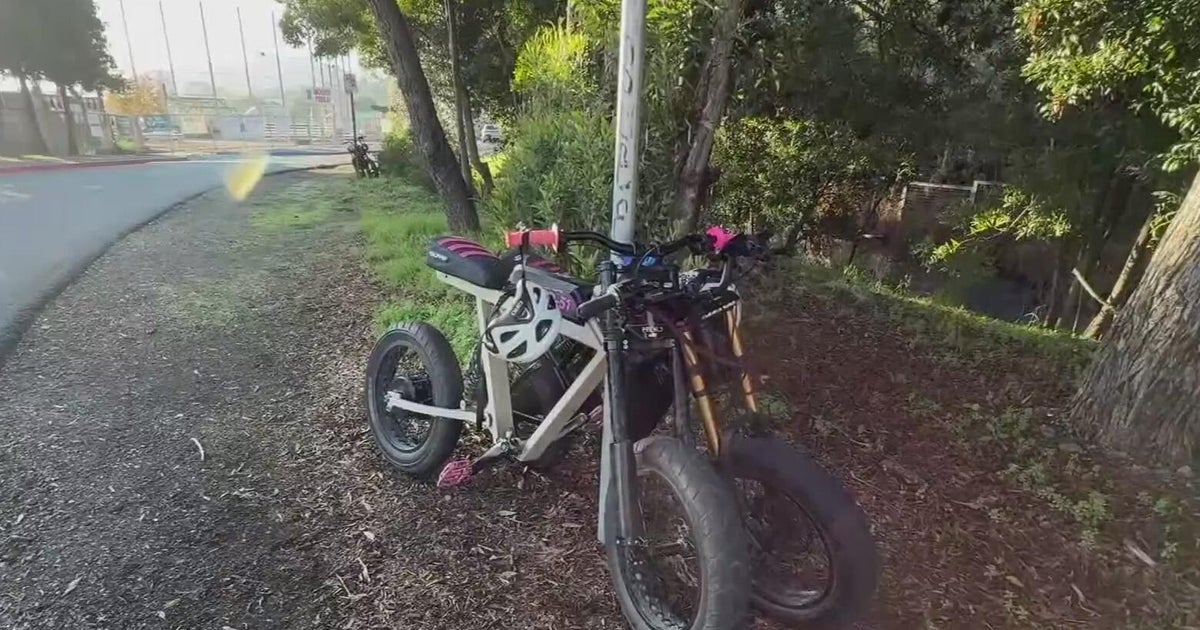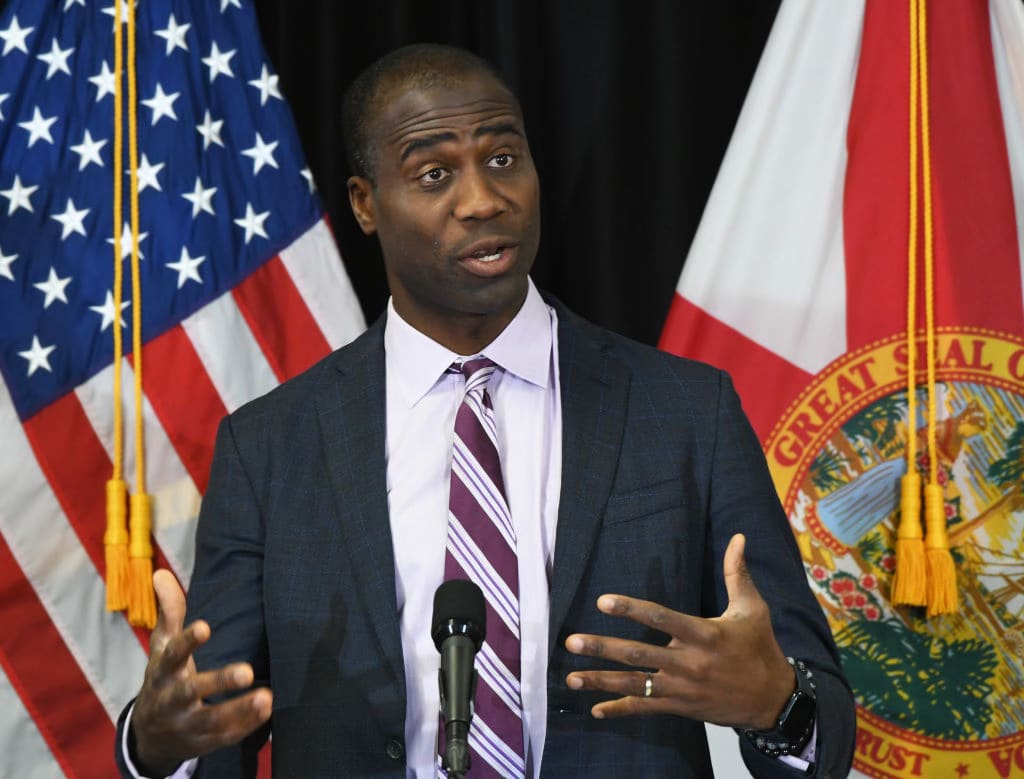Surgeon General: "Things are going to get worse before they get better"
Doctors and nurses confronting the expanding coronavirus pandemic say getting basic protective equipment, such as masks and gowns, and life-saving equipment, such as ventilators, remains a big concern. By Monday there were more than 35,000 reported cases of COVID-19 in the U.S.; more than 470 people had died.
On "CBS This Morning" Monday, the U.S. Surgeon General, Dr. Jerome Adams, a member of the White House coronavirus task force, said, "I didn't expect to be starting off my week with such a dire message for America, but the numbers are going to get worse this week. Things are going to get worse before they get better. And we really need everyone to understand this is serious, to lean into what they can do to flatten the curve."
With regard to the warnings from health officials and governors to the Trump administration that shortages of critical medical supplies will be catastrophic, Dr. Adams said, "I'm getting those calls every minute of the day. I got calls from people literally while I was sitting here waiting to talk to you. I want the health care workers of America to understand, these are my colleagues, these are my friends, and I will not rest until you all have the tools you need to keep yourselves safe.
"But why is this so difficult?" asked co-host Gayle King, pointing out the frustration felt towards the federal government in getting supplies to health care workers.
"The national stockpile purchases one-tenth of 1% of all the medical supplies in this country; the rest of it is in the market," said Dr. Adams. "We are using the stockpile through FEMA, which has been activated to Level 1, to send out supplies. There are supplies going out to the places most at need: Washington, California, New York. We have the military out on the ground in several of these places. We sent out CDC teams to provide backup. We've worked with the American Society of Anesthesiologists to identify 70,000 ventilators that are in the OR that can be converted. So, supplies are going out. We know that they're not going out fast enough to keep pace with the demand."
Dr. Adams reiterated the government's message, "15 days to stop the spread," asking Americans to practice social distancing in a dramatic way. "We can't ventilate our way out of this problem," he said. "We need to make sure that, in addition to getting supplies to people, that we're really focusing on … getting people out of the streets.
"Stay at home," he said.
Co-host Anthony Mason asked, "The president signed the Defense Production Act. He can essentially order companies to manufacture these supplies that medical professionals so desperately need at this point. Why isn't the government doing that?"
"The government is using the Defense Production Act to get people to the table," he replied. "We've worked with 3M, we've worked with Honeywell. They are already at mass production. Here's the thing people don't understand: you don't need to compel someone to do something that they are already doing.
"Every single day, there are people saying, 'Do we need to compel someone? Let's make the call.' Okay, they're already at max production. They're already working around the clock. And again, we are using the stockpile and FEMA to get resources out to people who need it. We're finding new and innovative people who are stepping up and volunteering, like Hanes. You would never have thought that Hanes would produce surgical masks."
Co-host Tony Dokoupil asked, "We're hearing reports of shortages on personal protective equipment, and you're saying we're at mass production. Does that mean shortages are just going to be the way it is?"
"We know there are going to be shortages in some areas," Dr. Adams said. "It's why I wrote an op-ed calling on people to stop elective surgeries. We need to make sure the supplies are getting to New York, to California, to Washington, to the places they need [them], and they can't get there if people are out … doing elective procedures. We want to be strategically moving the personal equipment and supplies to where it is most needed, and that's both [increasing] supply and driving down demand."
On Sunday, President Trump tweeted about the government's 15-day recommendations for social distancing as a means to halt the spread of the virus, saying, "We cannot let the cure be worse than the problem itself."
"This economic shutdown is very painful for people," said Dokoupil. "From a medical perspective, realistically, is there any chance that at the end of this 15-day period, we're going to go back to anything like normal?"
"We know it's going to be a while before life gets back to normal," Dr. Adams said. "Here's what I want America to know: we don't want to wait for 15 days. We don't want to wait another day. I'm driving in [D.C.] and seeing people out all over the place getting ready for cherry blossoms. You look on the news and you see people still at beaches. We don't have a day to waste. What we need to do is focus on today, this hour, right now."
- "Flattening the curve": Why we need to cancel everything and stay home to help stop coronavirus (CBS News)
- Coronavirus and flattening the curve: "This is no time to be selfish" ("Sunday Morning")
When asked how far away America is from experiencing a peak in cases, Dr. Adams said, "When you look at the China data, they were able to hit their peak and come back down in about six to eight weeks. You look at the Italy data, they're still going up. So, we are somewhere between the two.
"It's going to be up to everyone coming together … to determine whether our curve bends in the direction of China in six to eight weeks or whether it bends toward Italy. Unfortunately, we're seeing New York is approaching Italy. The numbers that you see of cases reflect what happened two weeks ago. Too many people are waiting too long to really take this '15 days to stop the spread' initiative seriously."
Dokoupil asked, "China didn't have a '15 days to stop the spread' voluntary restrictions; they were much more draconian than that. Are you saying we need more stringent recommendations" in order to halt the spread of the virus?
Dr. Adams replied, "We have a system of federalism. The governors are in charge of determining what's appropriate for their states. We've worked well with many of the governors, most of the governors. If you aren't seeing cases now, now is the time you need to be making sure you're doing the things so that you don't become the next New York, or the next Italy."
Visit the Centers for Disease Control and Prevention website for detailed information on coronavirus treatment and prevention.



